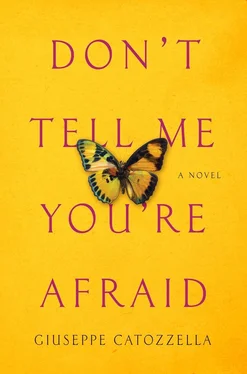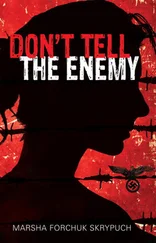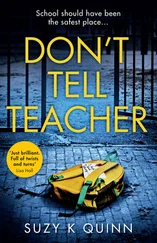Now and then, as often happened, we’d run into someone who would look me up and down and, seeing me dressed as a boy, would shake his head or mutter a few words under his breath before moving on.
About halfway home we were stopped by an old man with a long beard and bony face.
After looking at me disapprovingly, he started in with the same old story. “Where are the qamar, the hijab, and the diric, huh, girlie? Did you perhaps forget to get dressed today?”
“She’s an athlete, sir,” Alì answered for me. “And she just won a race. She commands the respect that athletes deserve.”
It was the first time I heard it said publicly that I was an athlete.
The old man looked at us and rolled his eyes, not knowing what to say. “And you? If she’s an athlete, who might you be?” he asked.
“I’m her coach. And her spokesman. When this athlete becomes known throughout the world someday, you, sir, will remember this conversation.”
At that point we looked at each other and burst out laughing.
The man muttered something and walked away, shaking his head.
I had become an athlete. For the second time, from the day Alì decided that he would be my coach. But this time it was more real.
By now it was late afternoon and the wind had suddenly risen, and when the wind starts blowing, there are only two things you can do in Mogadishu: keep your mouth shut to prevent the dust from drying out your throat for the rest of your days and quickly look for shelter somewhere so you won’t get coated from head to toe.
We filled our lungs and started running home.
I wasn’t tired at all. I could have run for another ten hours straight.
All of a sudden, at the intersection with the big avenue, a copy of the newspaper Banadir plunged down from the sky like a dive-bombing meteorite, carried from somewhere by the wind.
It hit me right on the shoulder, then fell to the ground, open to a full-size photo of a young man who immediately looked familiar.
Curious, I bent to grab the paper before it flew away again.
It was the face of Mo Farah, the runner who’d left Mogadishu when he was more or less my age to seek refuge in England; there a proficient coach was leading him to win numerous major races.
He had always been one of my heroes, someone to look up to. Born in Somalia like me, he had gone on to run and win throughout the world.
News of his victories and his talent often reached us.
Whenever I listened to something about him on the radio at Taageere’s bar or heard someone mention his name, I felt my stomach clench, due partly to anger, because he had managed to get away, and partly to never-ending admiration, so boundless it made me dream of becoming like him.
The headline said that Mo was a champion and that Somalia had made him flee.
Alì was already far ahead of me; he had continued running. I snatched the page hastily, folded it, and followed Alì home.
As I ran I thought that Mo’s face, which had looked at me in the wind, must be a sign.
A medal in one hand and a folded sheet of newspaper in the other, I let myself be carried along, transported lightly by the squally gusts.
When we got home, Alì told everybody about my victory before making the rounds to display the trophy.
Hooyo was moved, and Hodan and Hamdi teased her, imitating her wiping away her tears with a handkerchief and then blowing her nose with a big spluttering honk.
Nassir and Ahmed were also there, in a corner near the wall, sitting on the ground playing griir . Ahmed. It had been a while since I’d seen him; he didn’t come to the courtyard so often anymore.
When Alì got to them with the medal in his hand, Ahmed didn’t even raise his head from the pebbles. Nassir glanced at his little brother and then went back to talking to his friend.
Alì stood there frozen. Both Ahmed’s and Nassir’s eyes looked cruel, hostile, the pupils dilated.
Yassin had been watching the whole scene from the table where he was playing cards with Aabe. “Pay attention to your brother, Nassir,” his father shouted to him from there.
Nassir and Ahmed gave no sign that they were even present.
They went on with their slow, mechanical gestures, as if the world around them didn’t exist, as if we were all mere shadows in their minds.
“Nassir! I told you not to ignore Alì!” Yassin shouted louder, rising menacingly from his chair.
Nassir looked up in slow motion and said, in a deliberate monotone: “I saw, Aabe, I saw it. Calm down. It’s Samia’s medal. The one she won today. I saw it. Sorry, but it doesn’t interest me much. Don’t get riled up over such a little thing. Go back to your card game.”
Yassin stared at him bitterly, then looked disheartened. He mumbled something under his breath about Ahmed and waved a hand as if to say, The hell with him. Then he sat down again.
From where I was I heard him confide to Aabe: “I can’t do it alone. Without my Yasmin, every now and then I feel like I just can’t do it.”
“Don’t be silly,” Aabe told him. “You just have to forbid Nassir from seeing that friend of his.”
Then Aabe called Alì, who had been standing stock still in the middle of the courtyard.
Without saying a word, Alì came over with his head down, the medal still clutched in his hand. He seemed very little. A little child. Which, in fact, he was.
Aabe and Yassin tried to tell him something to make him smile, but by now it was no use. His good mood had vanished in an instant. Seeing Ahmed was all it took.
Then Aabe clapped his hands and everyone sang a traditional hymn to my victory.
After that day, Ahmed never again showed up at our house.
That evening, after supper, there was a big party for me. Hussein, Hodan’s fiancé, who had been sitting beside her and Hooyo all evening, had brought a sesame cake that his mother had made for the occasion. If I’d won, the cake would be to celebrate; if not, to console me.
Hussein and Hodan were now talking about marriage; our two families had already met, and his family had indicated that he would soon ask for Hodan’s hand.
Aabe hadn’t had to think twice.
He liked the young man, who was already twenty, five years older than Hodan, and he also liked Hussein’s father, his daughter’s future father-in-law. A family more well off than ours. He was happy to give his consent.
Soon Hodan and Hussein would marry.
When I heard that, I got jealous; I didn’t want anyone to take my favorite sister away. But then I tried to understand. I saw that Hodan was happy, and I was happy for her.
Besides, Hussein was pleasant, polite, and always well dressed; he liked me right away and called me “champion.”
That night everyone was happy for me, but the happiest of all was Aabe, who took me aside, kissed me on the head, and whispered in my ear: “Good for you, my little one. I told you you could do it.”
Then he got up, with the help of his ever-present cane, and limped to his room. When he came back he was holding a large black plastic bag. Inside was a pair of sneakers. White. Brand new, like none I’d ever seen before.
I could have swooned with joy.
I put them on and started leaping up and down like an idiot.
Then I looked around for Alì, my coach.
He wasn’t there.
Yassin shook his head and nodded to their room.
Alì had withdrawn. Again. Ahmed’s presence had that effect on him.
At least this time he hadn’t retreated to the eucalyptus.
I approached soundlessly, and after a while I popped in, showing off the shoes.
Alì lay on his mattress on his stomach, his face hidden in the crook of his arm. I tried to talk to him, but he didn’t answer me. I asked him if he wanted to try on the shoes, and again it was as if he hadn’t heard me.
Читать дальше




![Ally Carter - [Gallagher Girls 01] I'd Tell You I Love You But Then I'd Have to Kill You](/books/262179/ally-carter-gallagher-girls-01-i-d-tell-you-i-lo-thumb.webp)







